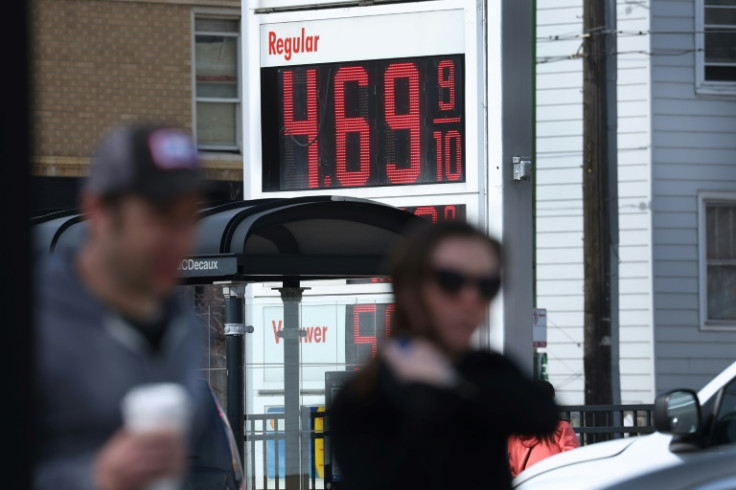
NEW YORK CITY - The consumer price index rose 3.5% in March, possibly eliminating the Federal Reserve's hope at cutting interest rates anytime soon. While rising prices from anywhere between food, housing and gas can affect Americans at large, the impact is not so equitable.
In fact, rising inflation tends to highly affect Latino and Black households compared to the rest of the U.S.
A majority of Latino (56%), Black (58%) and Native American (69%) households are struggling with serious problems as a direct result of inflation, according to a poll from NPR, the Robert Wood Johnson Foundation and Harvard's T.H. Chan School of Public Health. The figure compares to 44% of white households who report being in the same situation.
Similarly, the poll shows that minorities also struggle to maintain savings at the time of high-inflation.
For instance, 53% of Latinos say they do not have enough emergency savings to cover at least one month of their expenses, according to the poll. The same is true for 58% of Black people.
But despite these numbers, Latinos in particular are an important factor for economic growth.
The GDP of Latinos in the U.S. was $3.2 trillion in 2021 (the most recent year data are available), up from $2.8 trillion in 2020, $2.1 trillion in 2015 and $1.7 trillion in 2010, according to a study by California Lutheran University (CLU) and the University of California Los Angeles (UCLA).
To put it into perspective, if Latinos living in the United States were an independent nation, the U.S. Latino GDP would represent the fifth largest GDP in the world.
"We see unmistakable evidence that Latinos are drivers of economic growth and an important source of resilience for the broader economy," said Matthew Fienup of CLU's Center for Economic Research & Forecasting, the report's co-author and chief economist.
So if this is the case, why are Latinos being so highly affected by inflation?
To answer this question, New York Fed researchers used the Bureau of Labor Statistics' Consumer Expenditure Survey to see how different racial and ethnic groups spend their money. They also factored in the price hikes for the various goods and services.
One of the reasons for this trend, according to the researchers, is that Hispanic and Black Americans spend relatively more on transportation— including gas and used cars, both categories that usually see price increases— and also relatively less on entertainment and health care than White and Asian Americans.
Taking these factors, adjusted for spending levels, the inflation rate for Hispanic Americans was roughly 0.6 percent higher than the overall rate in 2022 for instance, CNN reported.
The recent spike in inflation is significant, as it may be a warning sign for storm clouds and a hurricane brewing in the U.S. economy.
Jamie Dimon, JPMorgan Chase CEO, and one of the most closely followed figures across the globe for his views on the economy, issued the bank's annual shareholder letter this week. Ahead of its Friday quarterly earnings report, Dimon said he has "concerns about persistent inflationary pressures," making him skeptical the economy will achieve a soft landing, where inflation continues to cool without causing an unemployment spike.
© 2024 Latin Times. All rights reserved. Do not reproduce without permission.







